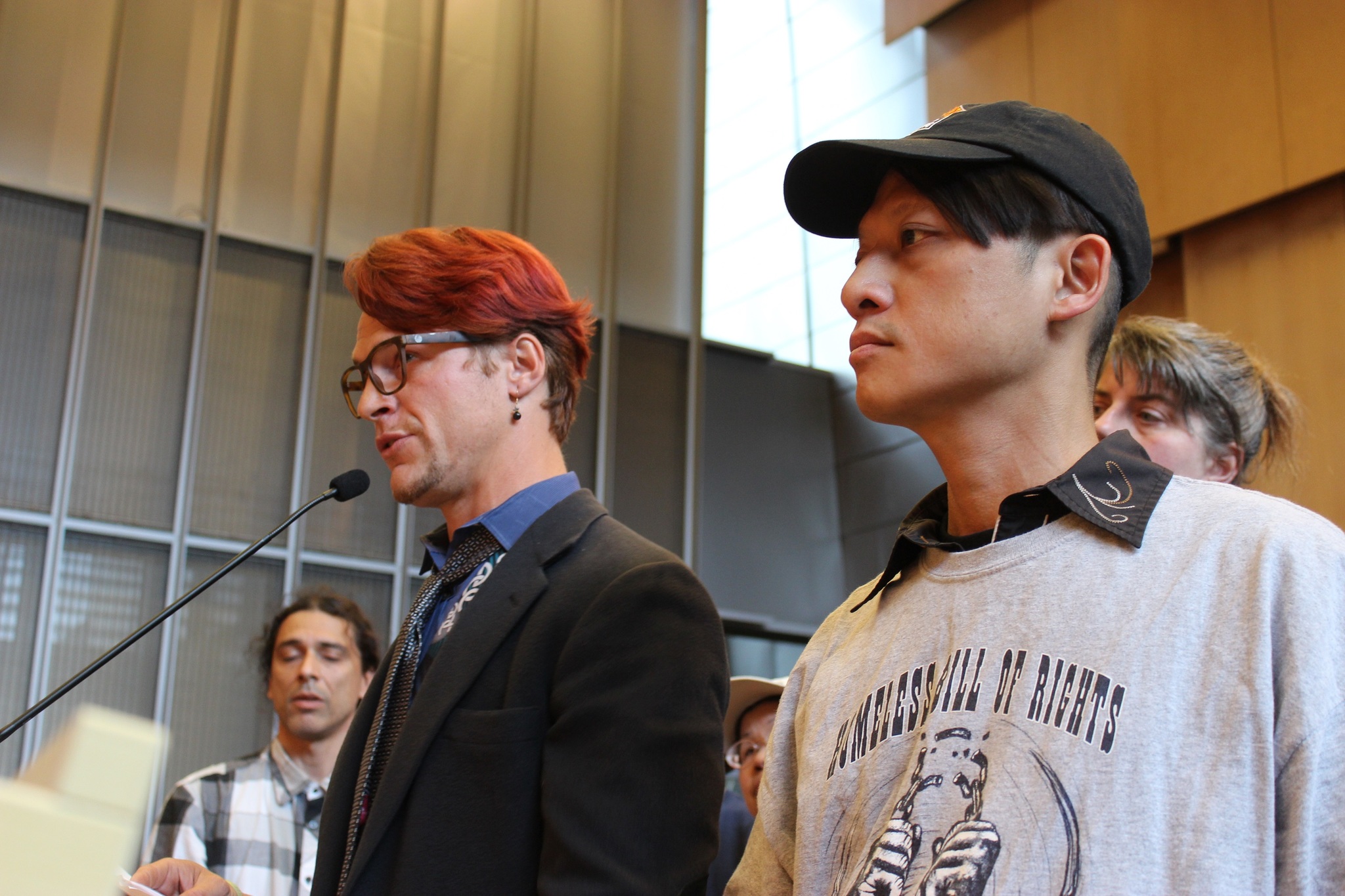This afternoon, about a dozen protesters stormed into City Council chambers and then the Mayor’s office. Their demand? Don’t sweep the Jungle, a stretch of unpermitted homeless encampments along the I-5.
The protesters marched into council chambers just moments after public comment ended and proceeded to the podium, where one woman began reading their demands. During a tense standoff, it looked for a moment like council president Bruce Harrell was going to have security officers throw out the speaker. “If she will be quiet and ask for permission, perhaps we can work something out,” he told other protesters. “But I’m not going to allow people to just come here and speak over our agenda.”
Harrell and council ultimately allowed the protesters to read their demands, which call for an end to sweeps of homeless encampments, particularly in the Jungle.
One speaker for the group identified himself as Andrew Jacob Collins and said that until recently he has be a resident of the Jungle. “Sweeps are going to cause mass amounts of displacement,” said Collins. “I know [officials] say it’s not designed to do that. I beg to differ.”
After chatting with reporters and a couple of councilmembers’ aides, the protesters ascended to Mayor Ed Murray’s office, where they delivered the same message to Scott Lindsay, Murray’s public safety advisor. As they waited to leave via elevator, the protesters chanted “Housing is a human right!”
At least some members of the council seem to agree with the protestors. Sally Bagshaw, who represents downtown, Queen Anne, and Magnolia, says that she’s drafted a council resolution against the impending clearance of the Jungle. She says she’s sent a copy to the mayor’s office but hasn’t heard back yet. Several other councilmembers told us they need time to consider Bagshaw’s resolution before taking a position. Kshama Sawant’s office, which represents Capitol Hill and the CD, says that she intends to co-sponsor Bagshaw’s resolution.
Mike O’Brien, who represents Ballard and Fremont, says that he’s on board with Bagshaw’s resolution. “A two to three week timeline to somehow comprehensively address the challenges of 300 or so people living in the [Jungle] is unrealistic,” he says.
O’Brien says that he can empathize with campers who prefer their own encampments to emergency shelters. “A mat on a gym floor with 50 other people where you have no privacy and there are other people that are suffering from mental health [problems] that are going to be screaming in the middle of the night, and your belongings may be stolen—that is not an upgrade for them,” he says. “If [Jungle campers] say, ‘No thanks, I’m better off where I am, I’m better off in the woods, and if you don’t let me be in these woods I’ll go find some other woods in town to hide in,’ that’s a rational decision that they’re making. And frankly, I don’t think they’re undermining the public interest by refusing to go into a gym.”
O’Brien says he’s open to shutting down specific, especially dangerous parts of the Jungle, and to relocating campers between sites if one particular site poses some sort of imminent threat like a fire or geological instability. But in terms of a general strategy for dealing with the hundreds of Seattleites who reside in the Jungle, he says, “Setting up an artificial deadline of two to three weeks is setting us up for failure.
“It may be a nice photo op the moment [the Jungle] looks clean, but it’ll re-populate.”








